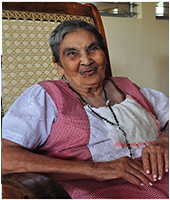Working memory function in users of senior centers
DOI:
https://doi.org/10.5377/hcs.v0i15.9898Keywords:
Working memory, seniorsAbstract
Purpose: The study aims to assess the level of working memory function in a group of senior centers users from Carazo department during the second half of 2019. Method: The study used a quantitative approach, which allowed the description and establishment of the relationship of the variables under study; a non experimental, cross sectional design was used, with a descriptive- correlational scope. The sample consists of 32 adults over the age of 60, both sexes and users of Asylum Agustín Sánchez and La Purísima senior dining room. The Working Memory Index from the Weschsler Adult Intelligence Scale (WAIS III) was applied, composed by the subtests Arithmetic, Digit retention and Letters and numbers sorting. Descriptive and inferential statistics were used, which allowed the hypothesis contrast to be realized. Results: Results indicate that there is working memory difficulties in participants and presents problems in the ability to manipulate information, have attentional control, planning capacity, organization and temporary and active storage of verbal, visual and spatial information.
Downloads
References
Ardila, A., y Rosselli, M. (2007). Neuropsicología Clínica. México: Editorial El Manual Moderno.
González, B., y Muñoz, E. (2008). Estimulación de la memoria en personas mayores. Madrid: Editorial Síntesis, S.A.
Hasher, L., Zacks, R., y Rahhal, T. (1999). Timing instructions, and inhibitory control: some missing factors in the age and memory debate. Gerontology, 45. 355-357.
Herreras, E. (2007). Función ejecutiva: evaluación y rehebilitación neurológica. Revista de Educación, 21 (9), 291-300.
Nastayashchada, E., y López, L. (2015). Diferencia entre hombres y mujeres en memoria de trabajo. Revista Neuropsicología, Neuropsiquiatría y Neurociencias, 15 (2), 35-51.
Ostrosky, F., y Lozano, A. (2011). Desarrollo de las funciones ejecutivas y la corteza prefrontal. Revista Neuropsicología, Neuropsiquiatría y Neurociencias, 11 (1), 159-172.
Portellano, J. (2005). Introducción a la Neuropsicología. Madrid: Editorial McGraw-Hill.
Portellano, J., y García, J. (2015). Neuropsicología de la atención, las funciones ejecutivas y la memoria. Madrid: Editorial Síntesis, S.A.
Ramos, P., Sopena, J., y Gilboy, E. (2007). Memoria de trabajo, atención y composicionalidad. Anuario de Psicología, 38 (1), 93-116.
Tirapu, J., Muñoz, J., & Pelegrín, C. (2002). Funciones ejecutivas: necesidad de una integración conceptual. Revista de Neurología, 34 (7), 673-685.




